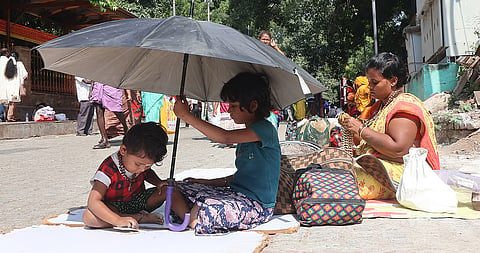

BENGALURU: At least 40 per cent of Gram Panchayats in the state do not have full-fledged Women and Child Protection Committees (WCC) and Education Task Forces.
These committees are tasked with tracking child marriages, teen pregnancies, school dropouts, child labour and child abuse.
With many of these committees not functioning, such cases are going unnoticed.
In Karnataka, there are nearly 6,000 Gram Panchayats. Each Panchayat caters to three or four villages.
The Department of Women and Child Development Empowerment of Differently-Abled and Senior Citizens set up these committees in 2019 to address the increasing number of child marriages, child labour and school dropout cases.
Women and Child Protection Committee usually have 13 members, headed by Panchayat President.
The committee also will have two women members of Panchayat, a woman schoolteacher, beat police officer, village accountant, NGO member, anganwadi worker, Self-Help Group member, two students and Panchayat Development member.
The Education Task force was set up in 2020 with 12 members, including Administrator of Gram Panchayat, Headmasters of primary, secondary and high schools that come under the panchayat limit.
The Education Task Force is tasked with enrollment of children in schools.
KT Thippeswamy, Chairman of Karnataka State Commission for Child Rights, told TNIE that in 40 per cent of the panchayats either no committee has been formed, or in places where committees have been formed they are not functional, and members are not aware of their responsibilities.
Thippeswamy has written to Commissioner, Karnataka Panchayat Raj Commissionerate, highlighting the situation.
The Commissioner has asked Chief Executive Officer of various Zilla Panchayats to streamline the operations of these committees.
Nagasimha Rao, a child rights activist, said that in many child pregnancy instances, the girls are treated as culprits rather than victims.
“Instances such as child labour and teen pregnancy are going unreported. There is a need to bring awareness on these issues and that is where these committees play a major role. These committees should work in such a way that they bring these children to mainstream,” he said.
